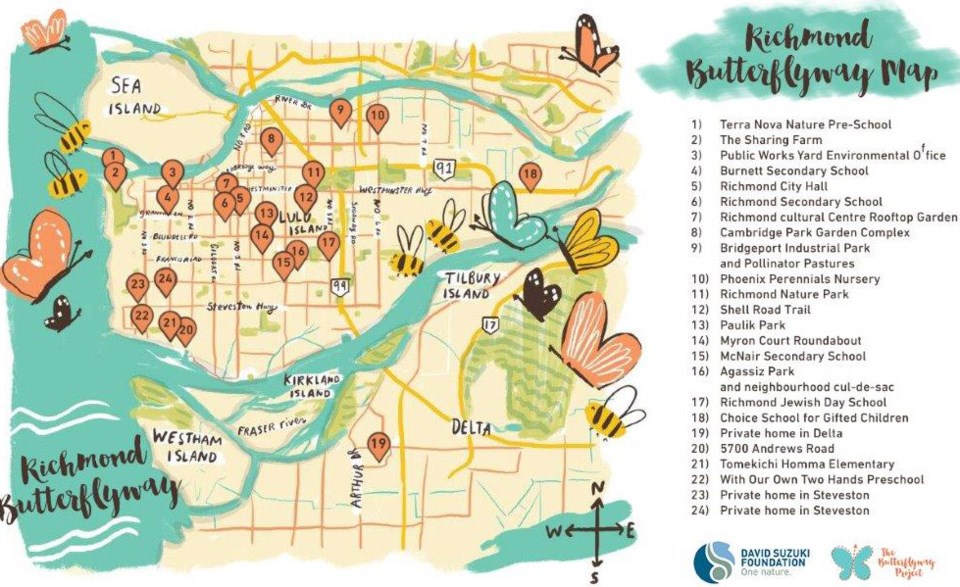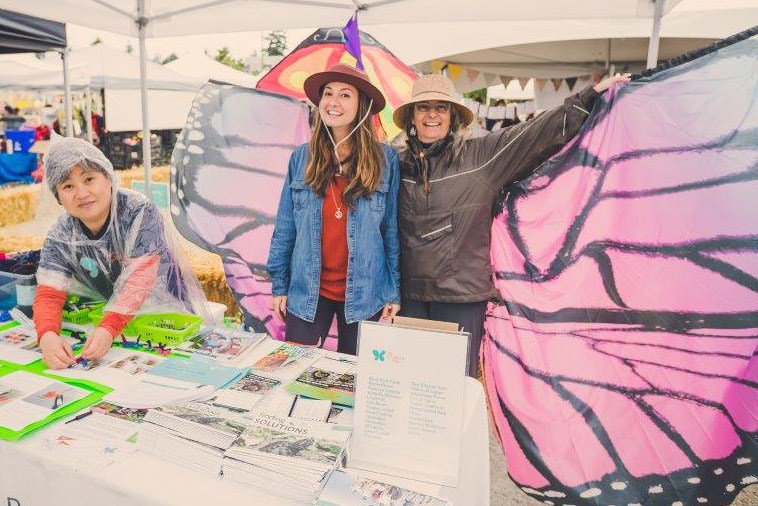Richmond is now one of five cities in Canada to have a flower “highway” for wild bees and butterflies. The beltway will provide a habitat for urban pollinators.
As part of the six-month Butterflyway Project led by the David Suzuki Foundation, 41 volunteer butterfly rangers from Richmond planted pollinator-friendly wildflowers on their balconies and rooftops, and in backyards, schoolyards and city parks.
The planting projects were the basis for a butterflyway map, which displays the 23 butterfly-friendly neighbourhoods in Richmond (and one in Delta).

“We chose Richmond for this project because the city already has a garden culture, and it is well known for its beautiful gardens and flowers,” said Winnie Hwo, senior public engagement specialist for the Foundation.
“With environmental changes, the wild pollinator population is declining. We need to help them survive.
"Honeybees and other wild species pollinate one out of every three bites of food. If bees and butterflies don’t do well, neither do we.”
The project started in Matthew McNair Secondary School’s science lab and an adjacent pollinator garden last April, where volunteers looked under microscopes and learned from bee and butterfly experts, according to Hwo.
They then underwent training in sustainable cooking, build-a-bee-house workshops and site visits to the city’s pollinator pastures before they were sent out to plant flowers.
“While only 12 butterfly patches are needed for an official Butterflyway designation, this group far exceeded our expectations; they doubled that goal and built 24 pollinator patches,” said Hwo.
Due to the success, Hwo said they will continue the project next year and will start recruiting the butterfly rangers next spring.
“I’m pumped for next year. A few interested Rangers are already waiting in the wings,” said Hwo.
Other Canadian cities involved in this project are Victoria, Montreal, Toronto and Markham.



